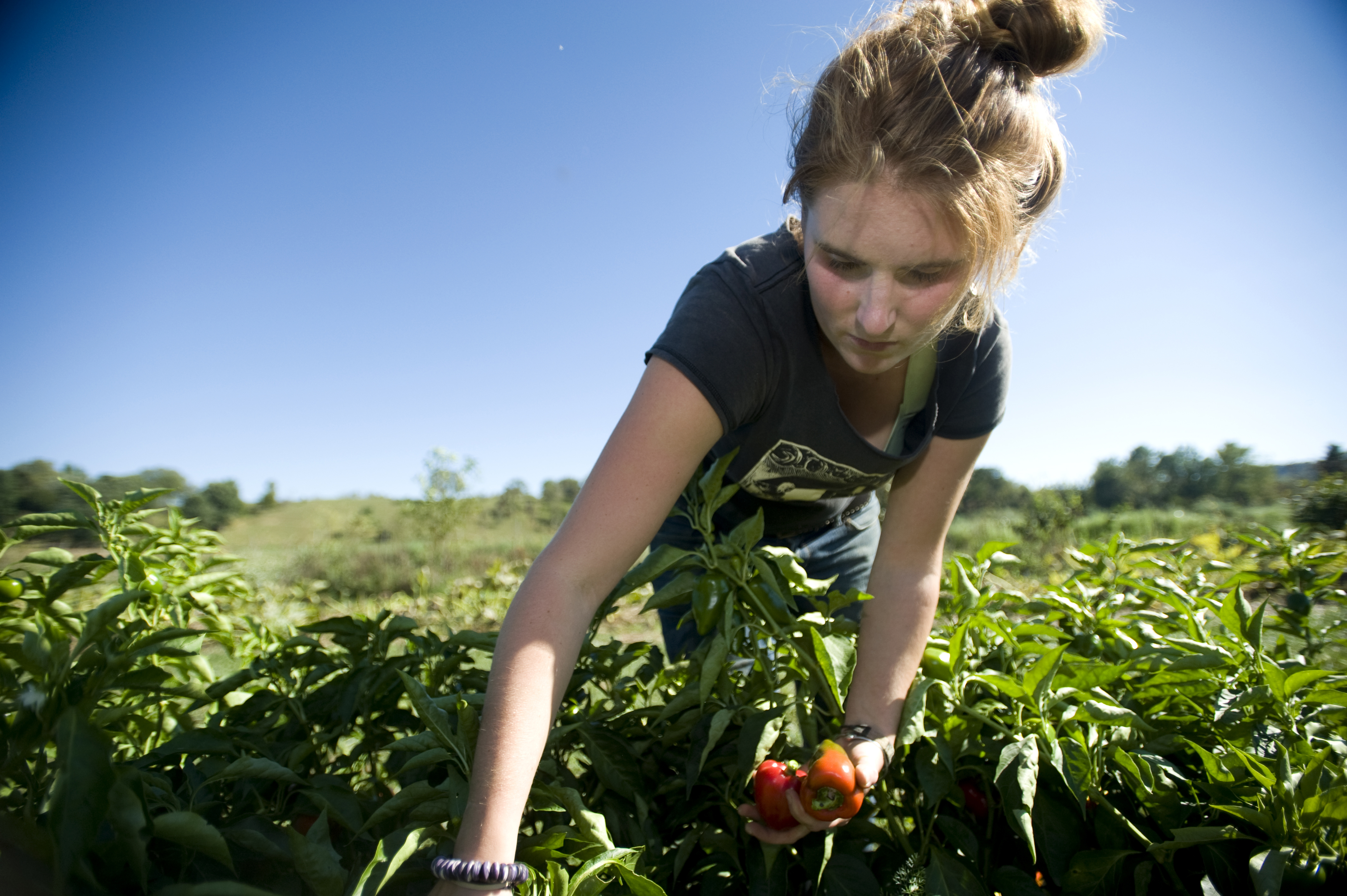Community involvement class practices active citizenship at Dining Services Garden at Kentland Farm

A group of Virginia Tech students engage in learning outside the classroom by volunteering at the Dining Services Garden at Kentland Farm.
Since mid-October, some members of a community involvement class in the Department of Urban Affairs and Planning have been promoting local food while getting hands-on experience by weeding, harvesting, and learning about the local food system. The Virginia Tech class focuses on issues, concepts, and practices of citizen participation in the development of a community.
One of the students volunteering with the community involvement class, Brianna Farr, of Woodbridge, Va., a senior majoring in environmental policy and planning in the College of Architecture and Urban Studies, says she enjoyed the change of working outside compared to learning in classrooms.
“As we harvested potatoes and sweet potatoes, the student farm manager talked with us about her work and how Virginia Tech was continuing to incorporate even more local foods into the dining halls,” Farr said. “I found I learned even more about how important a local diet is, while being able to contribute to the health of the community and environment around me.”
Farr also advised others should consider taking part in the experience of volunteering at Kentland Farm. “Everyone enjoyed taking a break from sitting behind a computer or at a desk and actually working with their hands out in the fresh air. It was easy work, and we really enjoyed each other’s company,” she said. “If you’re looking for an easy way to get involved and give back, volunteering at Kentland Farm is a great way to start.”
Volunteers consist of members of classes like the community involvement class, individuals, and even Dining Services employees. Volunteers have the opportunity to grow some of the food that the Virginia Tech community eats in dining centers. This upcoming summer and into next fall, hardworking volunteers will be needed to help with the harvest of the Dining Services Garden. Kentland Farm will continue to grow, especially with the help of volunteers on the farm.
New sustainability coordinator Elena Dulys-Nusbaum is currently planning the next stages of the planting at Kentland Farm. “We will hopefully be expanding production and reception of most vegetables and herbs in several of the dining centers,” Dulys-Nusbaum said. She says she understands that the semesters are busy for everyone, although she hopes to find people who want to volunteer regularly. “No matter what peoples’ schedules, the vegetables need to be harvested — they don’t wait for anyone!”
The Dining Services Garden at Kentland Farm has become almost two acres, which harvests sustainable herbs and vegetables. It has been in production since summer 2010, serving fresh vegetables and herbs in dining centers across campus. The expansion has had an immense impact on local foods available on campus.
The Farms & Fields Project at Owens Food Court is the main location for the garden produce, which is served during the academic year, but options may be found elsewhere on campus as well. It is dedicated to providing sustainable, organic, and local options. It is referred to as a “project,” because it aims to be dynamic and expanding. When students choose to eat at Farms and Fields, they support the commitment Dining Services’ has made to sustainability.
Virginia Tech has made a commitment to reduce waste, save energy, and responsibly manage the use of natural resources to improve sustainable living standards. From Eco-Olympics, to Dining Services' composting program, to going trayless in some dining halls, Virginia Tech students help increase the potential of campus sustainability for future generations.




